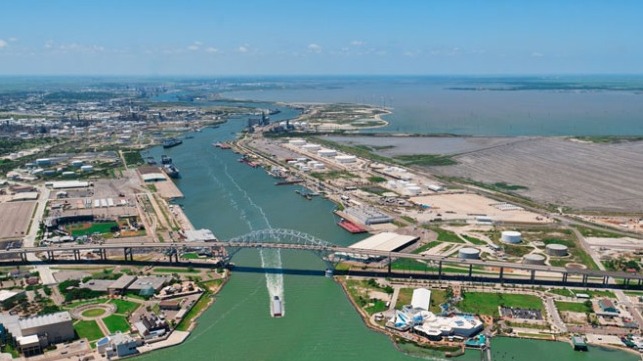Port of Corpus Christi to Participate in CO2 Capture and Storage

The Port of Corpus Christi Authority and the Texas General Land Office announced their intention to co-develop a carbon dioxide storage solution in support of national decarbonization targets. The proposed project is part of a broader effort to adapt the industrial region of Texas to future opportunities. The Port of Corpus Christi recently also announced plans to develop a blue hydrogen production facility.
“Utilizing new, innovative carbon storage methods is a critical step in demonstrating that energy development and environmental stewardship are not mutually exclusive,” said Texas Land Commissioner George P. Bush. This partnership will ensure that Texas energy developers continue to responsibly utilize resources for future generations, as well as provide good-paying jobs, and abundant and affordable energy.
The Texas Land Office has been pursuing several projects seeking to position the state as part of the future energy transformation. Recently, it also issued a Request for Proposals from entities interested in constructing carbon storage infrastructure on lands the office holds in Jefferson County, Texas to the east of Houston near Beaumont and Port Arthur, Texas.
Port officials noted that the Corpus Christi area has a high density of industrial CO2 target sources and that it can leverage the existing network of pipeline infrastructure to support the development of carbon capture. They noted that such a solution would involve infrastructure to transport and permanently store CO2 captured by various industrial target sources in the greater Port of Corpus Christi area.
“The energy transition is a strategic focus in hitting both commercial and environmental targets for the Port of Corpus Christi,” said Sean Strawbridge, Chief Executive Officer for the Port of Corpus Christi. “We are sending a clear message to the American people, to our industry partners, and to the global energy marketplace that the state of Texas and the Port of Corpus Christi intend to establish a large scale CCS management hub.”

that matters most
Get the latest maritime news delivered to your inbox daily.
Academics from the University of Texas at Austin reportedly have mapped the geology of the Texas Gulf Coast and determined this region is ideal for the injection and storage of pressurized CO2. Under their plan, the Land Office and the Port of Corpus Christi have identified the Texas Coastal Bend region as the next focal point for developing a scalable carbon management solution.
Carbon capture is also an element of the plan announced last month to create the region’s first carbon-neutral hydrogen production facility at the port. The goal is to convert Howard Midstream Energy’s existing Javelina refinery services facility to scale hydrogen production for exports to overseas demand centers or possibly for marine use. Howard intends to capture its carbon emissions at Javelina, either directing the CO2 to industries that require it for production, such as steel, or that assimilate it, like cement, or to store the CO2 at locations such as the new agreement with the Land Office.
